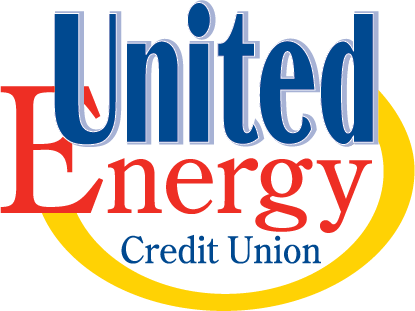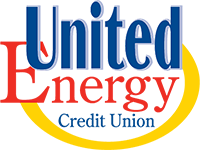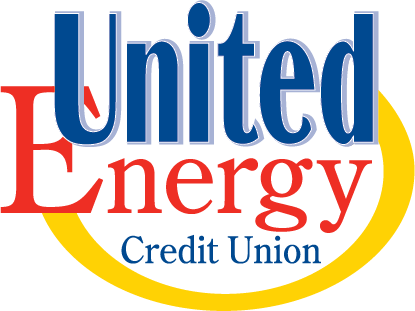Security Awareness
CONFIDENTIAL INFORMATION SHOULD NOT BE SENT TO THE CREDIT UNION VIA UNSECURED MEANS. IF YOU NEED TO SEND US CONFIDENTIAL INFORMATION, PLEASE CALL US AT 281.964.1777 SO WE MAY PROVIDE A SECURE MEANS OF SENDING THE INFORMATION.
Frauds and Scams
Please remember that UECU will never ask for your personal non-public information or ask you to confirm personal non-public information of any kind (i.e. member number, social security number, account number, PIN, passwords, credit card or debit card numbers, expiration dates or other confidential information) via email, text or call unless you initiated the original contact.
If you've received a suspicious email, text or call claiming to be from UECU, don't respond. If you've already responded and/or disclosed your personal information, please immediately call 281.964.1777 or 800.380.5430 option #1
How to avoid getting scammed
How to avoid scams and prevent fraud is a daily concern for many people. What’s your fraud prevention plan? Here are some simple rules of thumb to avoid getting scammed.
How can I spot imposters trying to scam me?
Fraudsters can often pretend to be someone you trust, like a family member, charity, or a popular company you might do business with. A couple of internet searches and a quick peak through your social media can give a lot of information to make it feel like someone might know you.
Is it possible for scammers to use fake caller id info?
Yes, technology makes it easy for scammers to fake caller ID information. The name and number you see pop-up on your phone, might not be real at all. If someone calls asking for money or personal information, HANG UP. This is an easy scam prevention. If you think the call might be legitimate, hang up and call a number you know is genuine.
Don’t spend money or give out personal information in response to an unexpected request. Spotting a phony donation request might have been easier to ignore when it was a phone call. Now requests can be in the form of a text or email. Protect yourself from fake charities and donation scams.
Can online searches prevent fraud?
How fraud can be prevented is just a keystroke away. Type a company or product name into your favorite search engine with words like, "review," "complaint," or "scam." You can also search for your current situation, like "IRS call." Did you know that you can search for phone numbers? You can search for the number that called and see if anyone had a similar situation or it’s fraudulent. (By the way, the IRS rarely calls. Remember to use a search engine and not just the web address they give you.
Should I pay upfront for work?
Being asked to pay in advance for things like debt relief, credit and loan offers, mortgage assistance, or even a job, are all red flags. Win a prize and all you need to do is pay the taxes? Nope. If you pay for these services up front, you might just see that money disappear. Learn where to get real help with these issues at www.consumer.ftc.gov.
Should I worry about payment scams?
Not all forms of payment are created equal. Credit cards have significant fraud protection built in, unlike using cash. Wiring money is risky because it’s nearly impossible to get your money back if something goes wrong. This is probably why wired money is a common payment type for scammers.
Is scam prevention easy?
One of the simplest ways to avoid being scammed is waiting. Before you give up your money or personal information, take a moment to pause. Fraudsters and con artists want to pressure you into making a decision in a hurry. When we are under pressure, we can make decisions that we later regret. Slow down, check out the story, do some research and consult an expert, talk to a friend, or contact the credit union.
Are robocalls fraudulent or just annoying?
If you answer the phone and hear a recorded sales pitch, hang up and report it to the Federal Trade Commission. These calls are illegal and have bogus products. Don’t even press 1 to speak to a person to be taken off the list because that can actually lead to more calls.
Are free-trial offers worth it?
‘Free is not for me’ when it comes to free offers. Free trials are often used as a way for companies to sign you up and bill you monthly. Then you have to call and cancel and there might be additional stipulations. Before you agree to a free trial, research the company and read the cancellation policy. Make sure to check your statements for charges you may not recognize.
If I deposit the check when will it be available?
This is one of the most common fraud tactics! Receiving unexpected deposits or being overpaid with a check only to be asked to give or send back money back, is a fraud red flag.
This type of fraud takes advantage of the lifecycle of a check. Once you deposit your check, the cash value may appear in your account. However, it may have a hold on a certain portion or all of the check. This hold is a good faith gesture that the money is there. Typically, it lasts from two to six days. Just because the hold on a check may be released, does not mean the funds have cleared.
How can I enroll in text alerts?
United Energy continually monitors our members’ debit and credit cards for fraudulent activity. Fraud Text Alerts is a free service for our members. If our fraud monitoring service detects a suspicious transaction on your account, we will alert you via SMS/text message of the transaction. If they do not get a response from the text alert, the Fraud Department will contact you. Login to eBranch and verify that the credit union has your correct contact numbers on file.
If you’re unsure of someone’s intentions, remember that United Energy is here to help you live well. Call us at 800.380.5430 or 281.964.1777 option #1.
What can I do if I fall victim to a scam and my identity has been stolen?
Identity theft is a crime and being a victim can be an extremely stressful experience. Fortunately, you can stop identity theft by immediately taking the following five steps below.
1. Request and review your credit report
You can request a free annual copy of your credit report from each of the three major credit bureaus by visiting www.annualcreditreport.com.
Review each of the reports and verify all your personal information, including your name, address, phone number, and social security number are correct. Check to make sure there are not any unauthorized inquiries or account openings from financial institutions or creditors. If any unauthorized inquires or accounts are found, contact the financial institutions or creditors to report it.
2.Place an alert on your credit reports
Contact the three major credit bureaus (listed below) to place a fraud alert on your credit file. A fraud alert requires creditors to take additional measures to verify the identity of a person requesting credit. There are different types of fraud alerts, so be sure to discuss the different options with the credit bureau representative.
Experian: 888.397.3742
Equifax: 800.525.6285
TransUnion: 800.680.7289
3.Contact your financial institution(s) and creditors
Inform your financial institution(s) and creditors that your identity has been compromised. Review your accounts and statements and report any fraudulent activity to them and ask to freeze or close any affected accounts.
4.Report and File with the FTC
Report your identity theft to the FTC (Federal Trade Commission) and file an Identity Theft Report by visiting their website at https://www.identitytheft.gov. You can also obtain a step-by-step recovery plan at the FTC site along with template letters for disputing fraudulent transactions and activity.
5.File a Police Report
Contact your local police department and tell them that your identity has been stolen and you need to file a police report. Make sure to request a copy of the report for your records.
Stay informed about recent fraud activity and scams aimed at consumers. LEARN MORE





